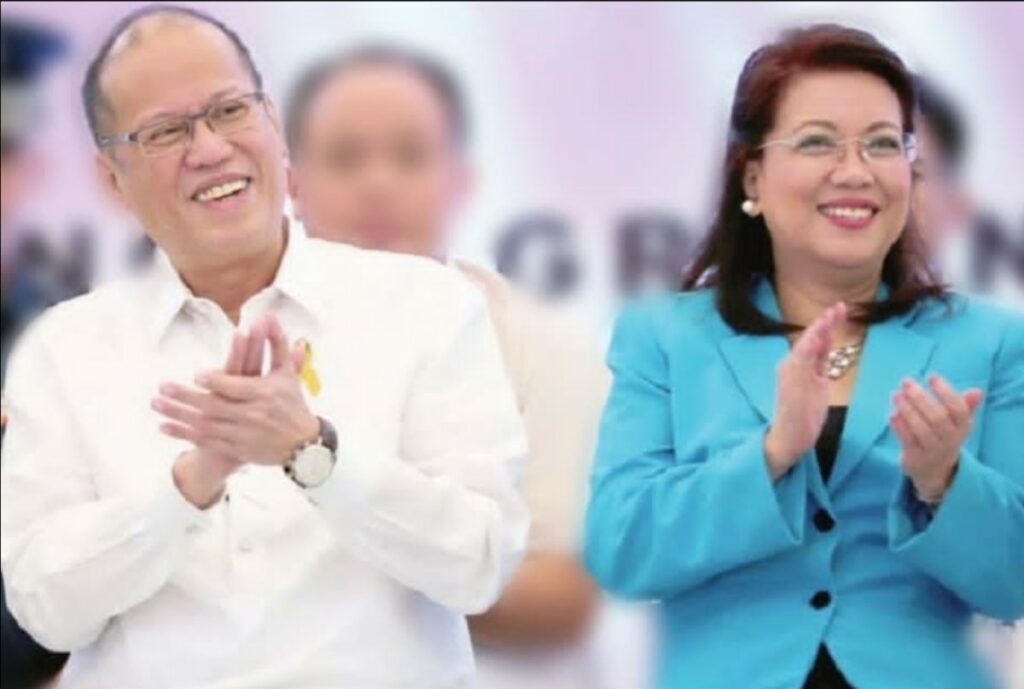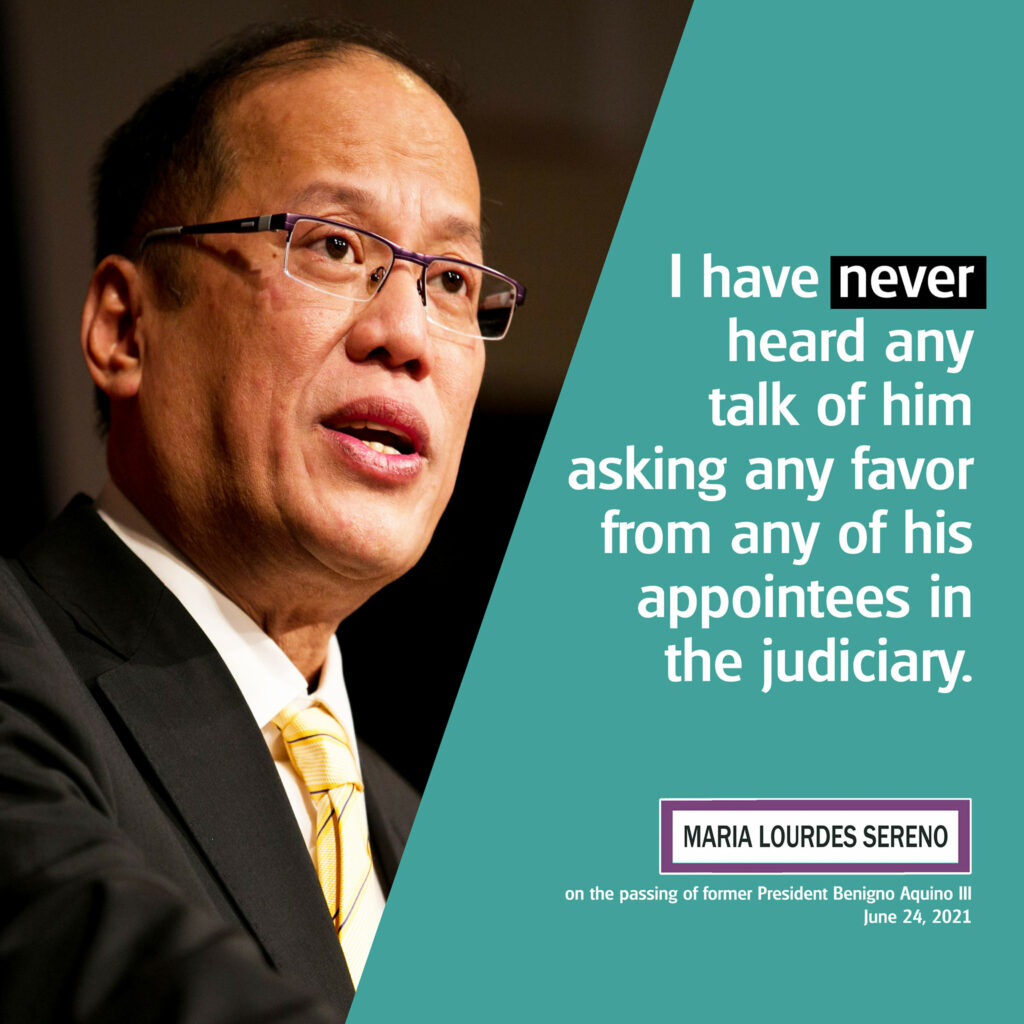STATEMENT OF FORMER CHIEF JUSTICE MARIA LOURDES A. SERENO
By Maria Lourdes Sereno
June 24, 2021
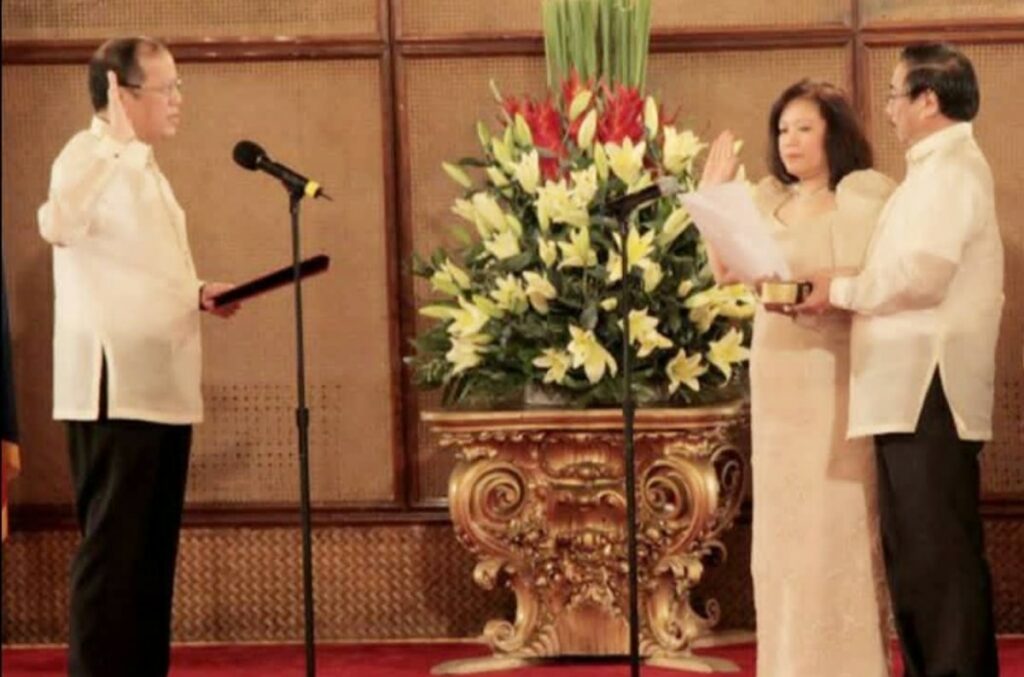
Former President Benigno Simeon C. Aquino III was a good man, a responsible leader. Some of our presidents will be remembered for how they tried to subject independent institutions to conform to their will; in contrast, President Aquino will be remembered for how he invested in the long-term strengthening of institutions of justice and accountability.
I have never heard any talk of him asking any favor from any of his appointees in the judiciary. He may have been initially so frustrated with the Supreme Court invalidating the Disbursement Acceleration Program but eventually he accepted it. He set aside whatever disagreements he had with the judiciary, and gave full support to increase its capacity for reform, including for the following programs: (1) increasing the MOOE for all trial courts with the goal of lessening their dependence on LGU assistance and increasing their independence; (2) approving the full funding of family courts that had been delayed for more than 15 years; (3) granting the full benefits of court social workers; (3) funding the infrastructure program of the judiciary, including for local halls of justice, the Court of Appeals in Visayas and Mindanao, and the Supreme Court lot acquisition in Taguig; (4) supporting the multiple year funding requirements for the computerization of the judiciary; and (5) putting the seal of the GoP on judicial reform funding by the European Union Aid and the USAID.
I witnessed how he supported breakthrough reform programs in the Philippine National Police and the Bureau of Jail Management and Penology, thru the Department of Interior and Local Governments. Those included increased police attendance at court hearings, unified evidence management by all justice sector actors, and detention prison reform. I also witnessed how he supported the Department of Justice through its reorganization of the prosecutorial service, and the attempted rationalization of the 1932-era Revised Penal Code. Those, I personally witnessed as Chair of the Justice Sector Coordinating Council from 2012 to 2018.
He may have had disagreements with the Commission on Audit, but he nevertheless supported its requested upgrading of the commission’s facilities and more budgetary support for additional auditor items. He fully supported the Ombudsman’s reform programs for faster resolution of cases and more upgraded salary positions for its personnel. Those, I personally witnessed as Chair of the Constitutional Fiscal Autonomy (which includes the COA, COMELEC, CSC, CHR and the Ombudsman) from 2012 to 2018.
We had spoken only thrice before my appointment to the judiciary. Once was in my presentation on the Japanese Philippines Economic Partnership Agreement; he was still a senator and I was a private lawyer advocating for fair trade arrangements with Senator Wigberto Tañada. The second, when he was already a President, was in the anniversary celebration of a major network where I was briefly introduced to him by Chief Justice Art Panganiban. The third time I spoke to him was over a long distance telephone conversation, which was his interview of me before my appointment on August 13, 2010. My candidacy to the Supreme Court was not backed by any politician nor businessman, yet he chose to vet me via a long-distance interview. His key question to me was, whether I can be like a Teehankee who had bravely soldiered as a lonely dissenting voice during the Marcos years. I said yes. He interrupted the call to receive the US ambassador, and when his office rang me up an hour later to resume the conversation, it was he himself who was on the other line. He simply said: “Congratulations, Professor Sereno. I have sent your appointment to the Supreme Court.” Of course I could just mutter a shaken “thank you” and asked him whether he had anything else, such as an advice, to tell me. His only reply: “Just do the right thing.”
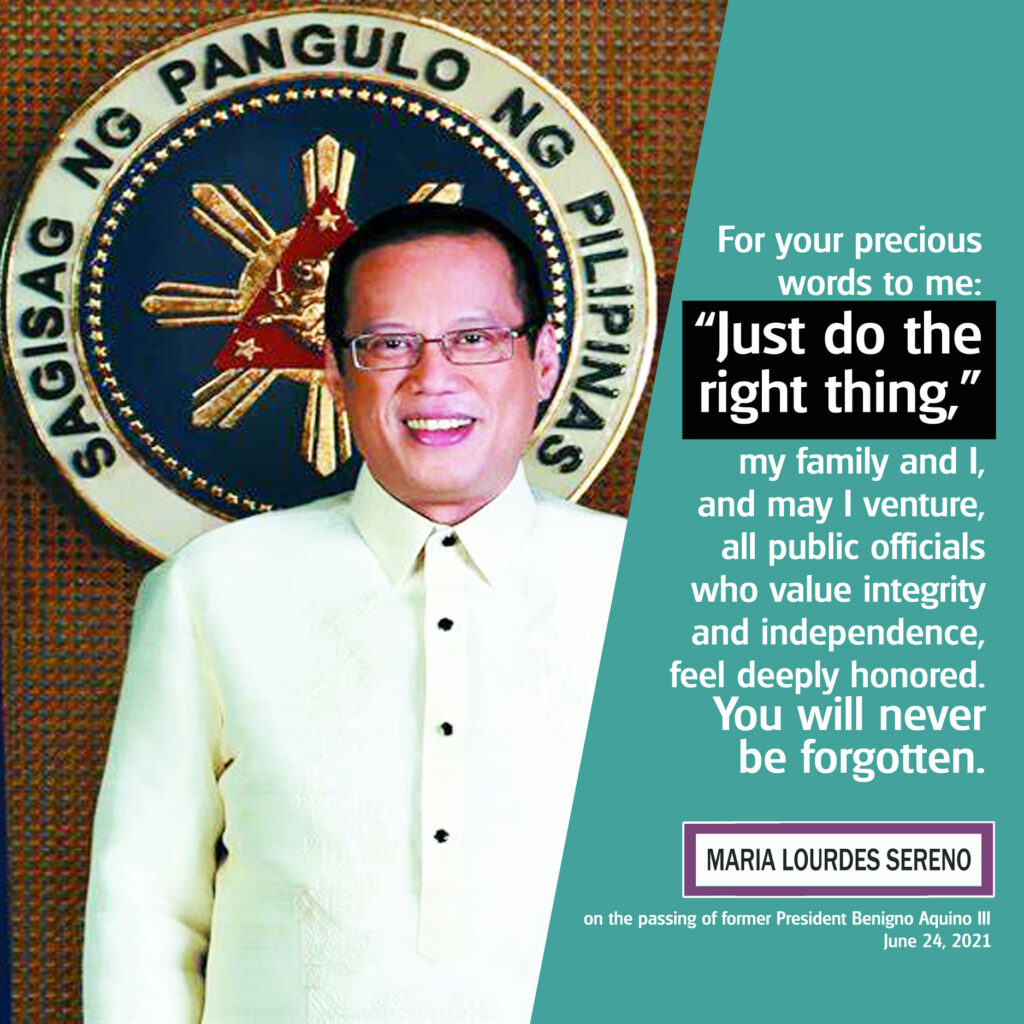
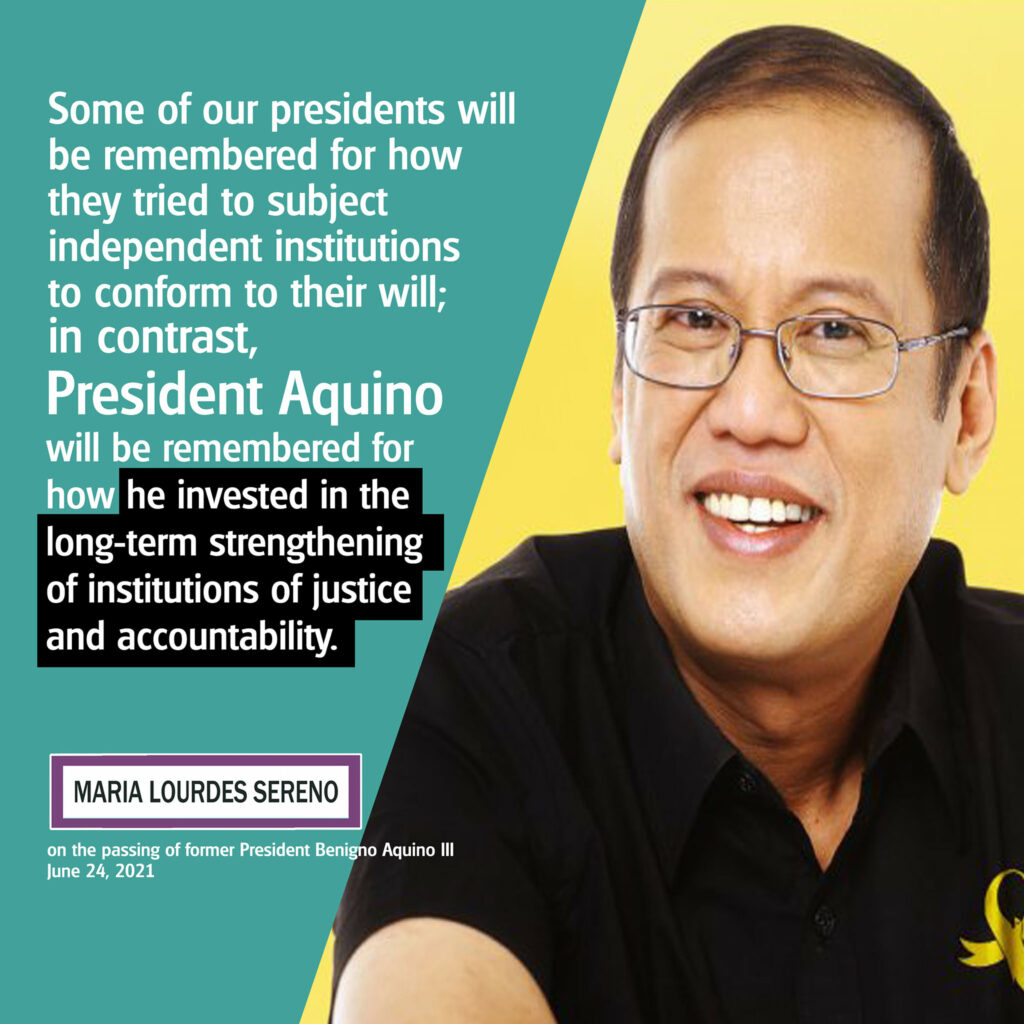
To the President who asked me to do the right thing and nothing more, I thank you. Generations will thank you for the high regard you held for professionals in government, for asking them to do only the right thing. May angels’ wings softly bear you to our Maker, He who imprinted His image upon you, that you may become His son. May you enjoy this special time you have as our prayers bid you:
Rest well, dear soul, and enjoy fully your eternal Father’s love. May you see your long-departed earthly father, Ninoy Aquino, who in his US speech in February 1983, told an international audience he expected to soon go home to the Philippines, probably be assassinated, because God had impressed on him what he had to do–prepare to offer his life that his people may be free. May you see your most beloved mother, who allowed no bitterness to enter the hearts of her children growing up, so that they could reap the blessings of a family that rests in God’s will. It is God’s will that your family would have a blessed, redemptive place in the nation’s history.
We trust in our Almighty God, that all your pains, including from the near-mortal wound that a would-be assassin inflicted on you in the failed ovethrow of your mother, and your deeper pain of knowing that your family had to endure so much hatred from the enemies of democracy, are now fully healed in the loving embrace of our Creator God. May His Spirit continue to liberate our people in the knowledge that it is only in the death of our grains of selfishness, as Jesus said, that the seeds of good will multiply. Our people owe you and your family much, for the restoration of our democracy, for the goodness that was always reflected on the face of your mother, for your focus on strengthening our institutions of justice and accountability. For your precious words to me: “Just do the right thing,” my family and I, and may I venture, all public officials who value integrity and independence, feel deeply honored. You will never be forgotten.
